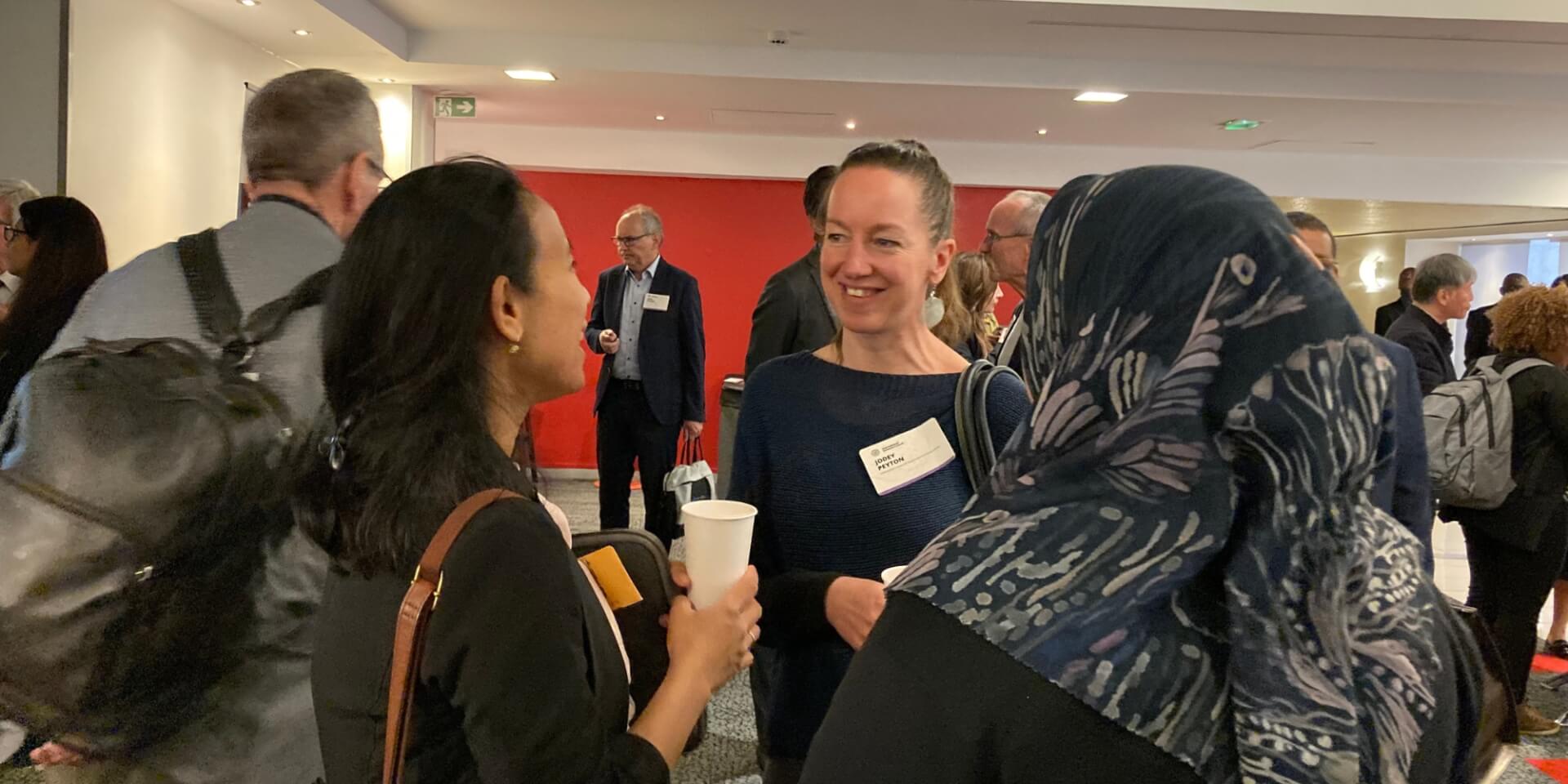
Global science institutions have a crucial role in pushing the world to accelerate work on the UN’s sustainable development goals, says Irina Bokova, ISC Patron and Co-Chair of the Council’s Global Commission on Science Missions for Sustainability.
“The sustainable development agenda is at a crossroads,” Bokova says. “There is pushback, and progress is uneven. It’s still working in silos. It’s still not taking the transformational direction that we need, in light of the different crises in the world,” she says, noting UN Secretary General Antonio Gutierrez’s concerns that global progress on the goals is stalling.
“We need actionable knowledge that is oriented towards implementing the different goals, and achieving what is in the SDG agenda: leave no one behind,” she says.
Getting there will require a transdisciplinary approach, merging work from experts on climate change, anthropology, sociology, agriculture and other fields, says Alan Bernstein, a member of the ISC’s Committee for Science Planning and president emeritus of the Canadian Institute for Advanced Research.
To do that, the ISC’s Commission on Science Missions is proposing the creation of a network of regional sustainability hubs, which would coordinate research and connect decision makers and people affected by issues with scientists doing relevant work.
“We need to start working seriously towards developing those sustainable development goals, because of the financial, human and planetary cost of not doing so. The return on investment, if this sort of model works, would be enormous,” Bernstein says.
The ISC also announced the launch of the Centre for Science Futures, a think tank which aims to provide advice on science for policy and the future of the scientific ecosystem. “This initiative reflects the ISC’s commitment to optimizing its services for the benefit of its members, not just for the next few years, but for the decades to come,” says ISC President Peter Gluckman.
Young scientists need to be not just in the room, but in decision-making roles where they can make policy suggestions and lasting changes, says Priscilla Kolibea Mante, a neuropharmacologist and executive committee co-chair of the Ghana Young Academy.
“There is a need for a paradigm shift in international science – one that embraces the unique perspectives and values of the next generation of scientists,” she explains. “We need to put young scientists where their voices are actually making a difference.”
Real, two-way communication between young scientists and institutions, and seeing that feedback influence real, measurable action is crucial, she says.
“(Young scientists) look at things very differently. They are very used to interconnectedness,” she says. “Everything is fast; everything is available, and they are used to having their voices heard. Inclusivity is a major thing for young researchers.”
“Freedom and responsibility of research and trust in science are important in times of crisis to sustain democracies, for peace, for conciliation,” says Anne Husebekk, ISC Vice President Freedom and Responsibility in Science.
But ISC research shows that scientists – and scientific progress overall – are increasingly threatened around the world, says Vivi Stavrou, Executive Secretary of the ISC’s Committee on Freedom and Responsibility in Science.
“We’re living in an era of polycrises – crises of different types, happening simultaneously, building on each other,” Stavrou says.
“The science sector is used to working in crises – but what we are used to doing is studying the crises. We are not used to looking at ourselves,” she says. “How do we rebuild when our universities are destroyed? How do we react when our online data is hacked?”
The ISC’s Committee on Freedom and Responsibility in Science is currently tracking 21 cases of broad restrictions on scientific work, and another 10 cases where individual scientists are directly threatened.
The most common cases are threats to the freedom of expression and movement of individual scientists, she says – often those whose work is perceived as a threat to entrenched interests, and primarily those working on health and climate change.
“Scientists are subjected to ongoing legal harassment, toxic abuse via social media, threatened with physical violence and jail, and in some instances, killed,” she says.
The ISC meeting continues this week, with upcoming sessions focusing on future growth for the ISC and its affiliates and future challenges and opportunities for the global science community.